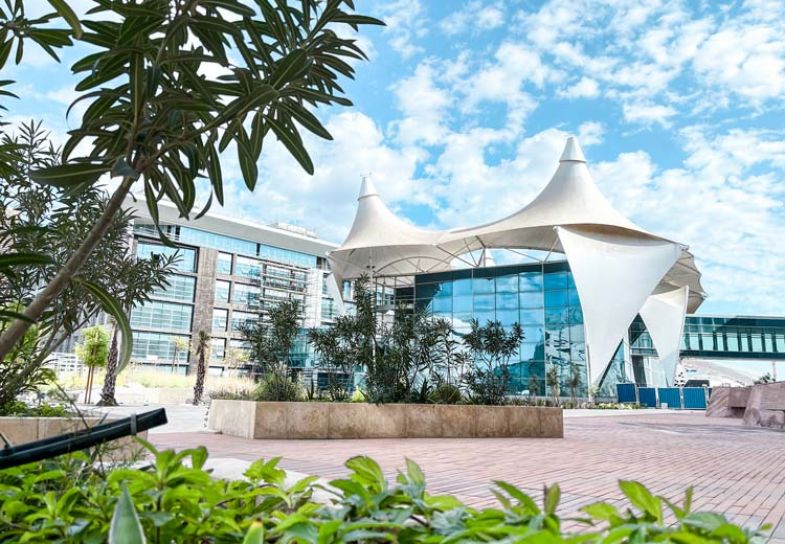
Kuwait University is actively engaged in the New Kuwait Vision 2035 and is committed to integrating sustainability goals into operations across the university
Kuwait University (KU) is at the forefront of implementing the New Kuwait Vision 2035, which seeks to transform Kuwait into a financial and trading hub underpinned by a sustainable and diversified economy with high-quality living environments, modern infrastructure and universal healthcare.
The university supports Kuwait’s vision of a sustainable and prosperous nation by actively contributing to its development and addressing global sustainability challenges.
KU’s strategic plan aligns with the pillars of the New Kuwait Vision 2035 and the United Nations’ Sustainable Development Goals (SDGs), with a focus on environmental leadership, education and research, capacity building and community engagement.
KU has recently built a new campus in Sabah Al-Salem University City, one of the largest educational campuses in the world, with an approximate area of six square kilometres. The new site prioritises sustainability by incorporating environmentally friendly design principles, renewable energy systems, green spaces and optimised resource management into every aspect of its design.
“The new campus is a symbol of Kuwait’s commitment to a knowledge-based society,” says Meshari Al-Harbi, vice-president for planning at the university.
Besides modern architecture and advanced technology, the city offers a range of facilities to support teaching and research in various disciplines, fostering multidisciplinary collaborations and a vibrant campus life with a focus on excellence, research and innovation.
"The initiatives and research efforts at KU align the SDGs with the local culture"
Haitham Lababidi, professor in the chemical engineering department at Kuwait University
Sustainability is at the centre of KU’s campus operations. The university employs an array of alternative energy techniques and strategies to reduce its carbon footprint.
Additionally, advanced methods are used to minimise water consumption, and a district cooling system with heat exchangers and thermal energy storage tanks is in place. The university is dedicated to educating its stakeholders in order to reduce its environmental impact.
“The initiatives and research efforts at KU align the SDGs with the local culture, with special emphasis on interdisciplinary research projects with humanities and social studies. We can export these ideas and help other universities in the region adopt them,” says Haitham Lababidi, a professor in the chemical engineering department at the university.
KU is currently working towards achieving accreditation as a healthy city in partnership with the World Health Organization’s (WHO) Healthy Cities initiative, in collaboration with Kuwait’s Ministry of Health.
The university is making efforts to integrate WHO-recommended methods and designs into KU’s facilities to comply with the organisation’s standards. To finalise accreditation, KU has signed a memorandum of understanding with the Ministry of Health to convert Sabah Al-Salem University City into a healthy city.
In line with the healthy city goals, the university is also working to increase the number of research projects and patents it produces by launching a fast-track patent service for faculty and students. Nurturing the next generation of environmentally conscious engineers and professionals is another strategy KU has adopted to further its commitment to sustainability.
A recent initiative run by the College of Engineering and Petroleum identified the sustainability contributions of final-year students’ projects, highlighting the college’s commitment to integrating sustainability into curricula.
Meanwhile, the College of Social Sciences at KU and a European Union delegation to Kuwait organised an event called the Role of Women in Environmental Policies in Kuwait, where three KU students were awarded the title of Women and Environment Ambassadors for their study on climate change and the role of women in policymaking in Kuwait.
By recognising the talents of this young generation, KU is playing a vital role in developing the changemakers of the future.
Find out more about Kuwait University.

